|
Vidas: Hello and welcome to Secrets of Organ Playing Podcast!
Ausra: This is a show dedicated to helping you become a better organist. V: We’re your hosts Vidas Pinkevicius... A: ...and Ausra Motuzaite-Pinkeviciene. V: We have over 25 years of experience of playing the organ A: ...and we’ve been teaching thousands of organists online from 89 countries since 2011. V: So now let’s jump in and get started with the podcast for today. A: We hope you’ll enjoy it! V: Hi guys, this is Vidas. A: And Ausra. Ausra: We hope you’ll enjoy it! Vidas: A lot of times, the instrument will teach you everything you need to know. Ausra: Sure, you just really need to learn to listen to yourself, what you are doing. Vidas: Now we have to take this saying with a grain of salt, because a lot of people today play at home with some kind of electronic instruments or virtual instruments, and in virtual instruments, the sound might be quite realistic, but the touch might be plastic. You see? And it’s quite different from tracker touch in a real pipe organ situation. People might not necessarily discover on their own when they play their home organs. Don’t you think? Ausra: As well, they can record themselves and listen to how it sounds, and of course you need to get opportunities to try different instruments. Vidas: Yes, go to locations, various locations, that’s more difficult than playing and practicing at home and enjoying the beautiful sounds from your living room. And this is a very comfortable setting. No one is bothering you, there are no external sounds or disturbances, but at the same time, you also lose something, right? With the extended effort that you need to put in when you go to church to practice and play the organ you gain something from that experience as well, after live concerts in the church as well, Ausra. Do you agree? Ausra: Sure! But you know, I think this fear of new environments and new instruments might come because you know so much, and you have tried so many different instruments. But for example, you know, for kids, they don’t have such a fear. If you remember, I once had the lecture demonstration / concert / public lessons for kids from the musical school at the museum of… church museum on that tiny Italian style instrument. Vidas: Yes, yes I rememer that. Ausra: And you know, before that I was so worried how all these little kids that have never tried to play the organ (they were all studying piano) and you know, how will they do on that instrument, and they will have to play something for me at the end of it. And actually, they did just fine, because they didn’t bother to be afraid of trying and of playing another unfamiliar instrument, and they did just great. Vidas: They didn’t overthink it. Ausra: Sure. Sure! Vidas: It reminds me of the experience that I had when playing this roll-up piano we recently got. Right Ausra? Ausra: Yes, we got it yesterday. Vidas: It looks scary, right? You can fold it up, fold it in a roll and take it with you when you’re traveling, but it looks scary when you play. There are no white and black key differences too much—a little bit of difference, the sharp keys are a little bit higher than the white keys, just a little bit, and the touch is different, of course, than either plastic keyboard or tracker touch, but as I discovered myself yesterday, if you just do it, sooner or later you get used to that touch also. Of course it’s not that comfortable, and maybe not even pleasant to play like that, but in emergency situations when you don’t want to miss practicing when you travel, I think it’s a good tool to have. So this comment I made like that reminds me of new instruments which we discover when we travel. And they’re not necessarily really scary, either. Right? Ausra: Yes. As I said, the most important thing is to practice. Vidas: What about audiation? You didn’t mention too much your position on the value of sight-singing. Does it help people develop this mental thinking and mental hearing that Daniel is talking about? Ausra: Well, you know, what I strongly believe why I think that all the audiation things must be done, must be developed, until you are a teenager. Because when you are a child these are the things you can develop very easily and you are still very flexible. You know, if you only start to do audiation when you are a complete adult, I think it will be really hard. It will, of course, give you some benefit, but I would not think it would do magic. Vidas: So, for people who are, let’s say, competitive in nature, they want to participate in competitions, then this type of learning, it’s probably too late for them. Right? Because they start too late in their life. But if they’re only doing it like Daniel, for themselves just to improve, why not? Ausra: Yes! In general singing is very very good for any musicians. Vidas: I usually emphasize singing music that you play. Your own organ pieces, excerpts of melodies, chorale melodies, even the hymn tunes. Right? What about opening any hymnal and just singing the hymns. Ausra: Yes, but it will not do you much good if you only sing the melody or soprano line. I think if you really need to do the audiation and you want to benefit from it, you need to sing inner voices. Let’s say if you have four voices, then sing alto or tenor. It will benefit you much more than singing the soprano line all the time. Vidas: Or start with just two voices at a time. One voice you play, one voice you sing, and you switch. Ausra: Yes, that’s very beneficial! But I really don’t know how much time you have to do it for such things, because it takes time. It really takes time. Vidas: Yes. Ausra: Especially if you don’t have well developed skills to do it, it might be really difficult. Vidas: And might not be worth it, you see. Ausra: Well, yes. In some cases, yes. Vidas: Yeah. Usually people don’t have full time devoted just for organ playing and improving organ practice, improving their audiation and improving their organ technique. So they need to do something very concise in that area—to learn something in 30 minutes or 1 hour, or at the most, 2 hours with some breaks in between. Right? Ausra: Sure. Vidas: Every day, ideally. But some people don’t even practice every day. That’s the key. Ausra: Yes, and you know, if you will have all day long to do things every day of what Daniel talked about, all of them are actually excellent things, you know. But it takes really many many hours to achieve it. Vidas: Yes. So maybe, this is a long conversation. Right? Maybe we will split it in two halves to discuss it in two different podcast episodes. Almost 20 minutes. Time flies quickly! Ausra: Sure, when the question is good. Vidas: And very thoroughly detailed. Okay guys, please send us more of your questions; we love helping you grow. And remember, when you practice, Ausra: Miracles happen! V: This podcast is supported by Total Organist - the most comprehensive organ training program online. A: It has hundreds of courses, coaching and practice materials for every area of organ playing, thousands of instructional videos and PDF's. You will NOT find more value anywhere else online... V: Total Organist helps you to master any piece, perfect your technique, develop your sight-reading skills, and improvise or compose your own music and much much more… A: Sign up and begin your training today at organduo.lt and click on Total Organist. And of course, you will get the 1st month free too. You can cancel anytime. V: If you like our organ music, you can also support us on Buy Me a Coffee platform and get early access: A: Find out more at https://buymeacoffee.com/organduo
Comments
Vidas: Hello and welcome to Secrets of Organ Playing Podcast!
Ausra: This is a show dedicated to helping you become a better organist. V: We’re your hosts Vidas Pinkevicius... A: ...and Ausra Motuzaite-Pinkeviciene. V: We have over 25 years of experience of playing the organ A: ...and we’ve been teaching thousands of organists online from 89 countries since 2011. V: So now let’s jump in and get started with the podcast for today. A: We hope you’ll enjoy it! V: Hi guys! This is Vidas. A: And Ausra. Vidas: Let’s start episode 634 of Secrets of Organ Playing Podcast. This question was sent by Andrew, and he writes: “I just wanted to say thank you for your "Mastering" series on YouTube. I am a percussionist turned organist, and every time I'm struggling to learn a new piece, it really helps to watch your videos. Even though I'm not learning the same music as you, the same principles of practicing apply, and I learn so much better when I remind myself to take things in small parts in repetition. You are doing a wonderful job of producing great content to help people like me. Right now, I'm working on "In dulci jubilo" by JM Bach, "Nun danket" by Karg-Elert, and "I Love Thee, My Lord" by Shearing, as well as some other long term Franck pieces that will be taking me a while to finish learning. The most challenging thing for me in playing organ is developing my kinesthetic sense between hands and feet, so I don't have to look away from the music and lose my place. I'm not a keyboard player by training, so I'm trying to take things slowly and learn from my mistakes as they happen, instead of just getting frustrated. Once the pandemic hit hard, I decided it was time to get an organ for my house so I could practice whenever it would be convenient for me. I also have a 2 year old son, so it's hard to get away from home for a long time to practice at church. I bought a nice custom package from Content Organs that I enjoy, but I also really like your creative setup and what you were able to put together from online stores. Looking forward to seeing more videos from you soon! Thanks! Andrew Fuhrman Austin, Texas, USA PS I will support you on Patreon!” Vidas: So, Andrew is one of our recent Patreon supporters, which is very, very nice. Thank you very much for your generosity, Andrew! My CD, “Veni Creator Spiritus” is being sent to him as one of the benefits for this subscription level. So, what do you think, Ausra? Ausra: Yes, that’s a very nice letter. Actually, I never thought about people switching from percussion, as Andrew did, to the organ, but it’s really, really nice! I think percussionists have such a different experience, I think, compared to other musicians, but I think he could benefit from it very well, at least, you know, he won’t have to learn how to count music, you know, and to read the rhythms right. Vidas: Right! Percussionists have very great… probably… diversification between hands and feet. Coordination between them is probably one of the best things they can do. Right? Because they play different rhythms in different hands and even feet! Ausra: True! I think this might help a lot while switching the instruments. Vidas: So, obviously it’s very nice to have him as a Patreon supporter. People like Andrew, and there are, I think, nine total Patreon supporters as of now, they really enable us to create more interesting organ videos for free for everybody to see on YouTube, and later to share with our Secrets of Organ Playing community! Ausra: Yes, and it’s very nice that someone appreciates your videos, while I know that I spend half my day alone not without a reason, that you are doing a meaningful job! Vidas: Yes, you’re probably referring to my long, long training video sessions. Yesterday, I think, I decided to create a video training on “Canonic Variations by Bach, on ‘Vom Himmel hoch da komm’ ich her’.” It has five variations, but in one hour or even more than an hour, I was only able to create half of the training program for this, and left the other half for another day. And you were waiting, sitting silently. Right? What were you doing at that time? Ausra: Well, I was working on something as well, because I am busy, too! I am busy, too, as you well know. Vidas: When you work, I just sleep! I just feel so relaxed when you play those ear training exercises, and I get on my couch and doze off. Ausra: I hope my students won’t fall asleep while I’m playing for them. Vidas: It’s possible if you are teaching them online. You never know what they are doing. Ausra: Oh yes, believe me, I know now, because now we have to have their cameras turned on all the time. Otherwise I can just mark that they were absent during the lesson. Vidas: Mhm, that’s right. Ausra: But of course, I can see they turn their mics off, and I see that they are talking, for example, on the phone. Vidas: Oh! You see that!? Ausra: Yes! I see that and other things, believe me, you wouldn’t want to know! Vidas: That’s not nice. They disrespect your work. Ausra: Or, they turn on the camera but they slide slightly on the side that I still could not see their faces. Vidas: Really? Ausra: Yes. Vidas: They’re so clever! Ausra: Yes. Vidas: Not even clever, but I would say cunning! Ausra: Yeah… Vidas: You know, sort of, they want to do their own thing while you’re teaching them! Ausra: That’s right. Or I can see that they are watching something completely different, because I see the expression on their faces, and they’re watching, for example, something funny. Vidas: It’s so stupid! Ausra: I know, it is, but what can I do? Vidas: You can… nothing, actually! You can only shame them in public in our podcasts! Ausra: That’s true, but they probably won’t listen to them. Vidas: Give them the link to this conversation when it’s live! Ausra: Oh yes! Maybe I will! Vidas: Yeah. If you won’t, I will! But I have no access to your class! Ausra: True! Vidas: So, Andrew has now a two manual organ setup, and it’s really nice. I think he has Hauptwerk installed, as you understand. Or not? Ausra: Yes, probably. Vidas: Hauptwerk really helps create beautiful sounds from home. What else? We can say, of course, he’s practicing those pieces… this was written a little bit earlier, so “Nun Danket” was suitable for Thanksgiving, but “In Dulci Jubilo,” by Johann Michael Bach is suitable for Christmas, upcoming! Ausra: Yes, it’s a very beautiful piece for Christmas! A very beautiful chorale tune. Vidas: I wish I could play it tomorrow. I’m playing at the church tomorrow, but it’s not that occasion. Ausra: If you will not forget to go and to play as you did a couple Sundays ago. Vidas: Right… good that not a couple Sundays in a row. Ausra: I already thought they would never ask you to play in church again after that mistake! Vidas: Yeah. Every day is the same, the schedule is the same. I’m staying at home and doing the same thing over and over, so it doesn’t make sense if it’s Sunday or Monday or Tuesday or Saturday. I don’t know what day it is today. Ausra: Well, I think after this pandemic is over, we all need to see shrinks! Vidas: Can I be your shrink? Ausra: I highly doubt it. Vidas: But I’ll be nice! I’d advise you to take some vitamins, stretch, walk! Ausra: I think the only advice you would give me is to record and to put something on YouTube every day! Vidas: mmm….. yeah, that would be part of my treatment to you! YouTube treatment, program! Ausra: I know you too well, and you know me too well! Vidas: Oh guys, you see, we are so different! Ausra likes to create but not share, and I like to share everything! Oversharing sometimes. Ausra: But people like your videos, so I think you are on the right track. Vidas: I think they would like your videos, too, if you posted more often. Ausra: Hmm… after spending half of my day every day teaching online, I don’t think you would want to do any extra videos. Vidas: It’s hard to imagine, of course, because I’m not teaching half of the day online. If I were you, probably I would… of course I would not create long videos like I’m doing right now, and I would even not create organ videos, probably, but I would probably do harmonic analysis videos—something that comes very easily to me. You know, sit down, 10 minutes or 5 minutes and I’m gone, but creates value for people. You know? Less pain, but greater value. Ausra: Well, you know, if I would receive so many nice comments as you do, maybe I would work on that more. But, since I don’t, why bother? I would rather watch Netflix. Vidas: <laughs> Do you receive nice comments from Netflix? Ausra: Well, at least I receive the satisfaction! Vidas: Guys, if you’re listening to this, please, please, please go to Ausra’s YouTube channel and say nice comments to her. Or else, I will create fake YouTube accounts and start spamming your channel with nice comments. Ausra: Please don’t do that; I will find out about it eventually and you will be in big trouble. Vidas: How would you know? Ausra: Intuition! Vidas: Oh yeah! Ausra has good intuition! Ausra: Because right now, I guess only my students who are forced to watch my YouTube channel are watching it because they have to take that ear training course every week, to write one oral dictation and to do other exercises, and they don’t leave nice comments to me. Vidas: Ever… Ausra: Yes. But, you know, I’m thankful that they don’t leave nasty comments as well, which is, I think, some kind of progress already. Vidas: True. True. Alright guys, this was Vidas, Ausra: And Ausra! Vidas: Please send us more of your questions; we love helping you grow. And remember, when you practice, Ausra: Miracles happen. V: This podcast is supported by Total Organist - the most comprehensive organ training program online. A: It has hundreds of courses, coaching and practice materials for every area of organ playing, thousands of instructional videos and PDF's. You will NOT find more value anywhere else online... V: Total Organist helps you to master any piece, perfect your technique, develop your sight-reading skills, and improvise or compose your own music and much much more… A: Sign up and begin your training today at organduo.lt and click on Total Organist. And of course, you will get the 1st month free too. You can cancel anytime. V: If you like our organ music, you can also support us on Patreon and BMC and get early access to our videos. A: Find out more at patreon.com/secretsoforganplaying and buymeacoffee.com/organduo Last week I went to Vilnius University St John's church and helped fix my friend Audrius Norinkus pipe organ mechanics - the action of treble E and F keys on the 1st manual. Then he worked on the action of the tenor C in the pedals. The entire process took us over 90 minutes but I made a time lapse video for fun watching. Hope you enjoy it!
While Ausra was teaching at school today, I went to Vilnius University St John's church and the first task I did was to try and fix the issue of a harder than usual key action of treble E on the 1st manual. I needed to get inside of the windchest of that division, find the specific pallet and lower the pressure of the spring underneath it. Hope you will enjoy the close-up look into the process!
Today I came to my church and found the Swell pedal broken. I needed to fix it and in this video I will show you what I did.
If you like my music making, you can support me on Patreon and get free organ CD's at https://patreon.com/secretsoforganpla... Buy me coffee: https://www.paypal.me/VPinkevicius My Hauptwerk setup: https://www.organduo.lt/tools.html Total Organist - the most comprehensive organ training program online: https://www.organduo.lt/total-organist Secrets of Organ Playing - When You Practice, Miracles Happen! https://organduo.lt
Vidas: Hello and welcome to Secrets of Organ Playing Podcast!
Ausra: This is a show dedicated to helping you become a better organist. V: We’re your hosts Vidas Pinkevicius... A: ...and Ausra Motuzaite-Pinkeviciene. V: We have over 25 years of experience of playing the organ A: ...and we’ve been teaching thousands of organists online from 89 countries since 2011. V: So now let’s jump in and get started with the podcast for today. A: We hope you’ll enjoy it! V: Hi guys! This is Vidas. A: And Ausra. V: Let’s start episode 595 of Secrets of Organ Playing Podcast. This question was sent by Giovanni. And he asks, How much is the price of an organ for a home, and where can I buy one? V: Well, this is very diverse question, I would say, right, Ausra? There is no one answer. A: Yes, there is no one answer. Because we ourselves have two organs in our home now. And one is tracker organ, which has only two stops, and it cost us a fortune at the time we got it. And now we have this Hauptwerk three manual and pedal Hauptwerk set (Update - 4 manuals now), which cost us much less money. V: Mm hm. A: Comparing to that other one. V: Because this was when we just returned from our studies in the US, and we were looking for an organ, and we were discussing various possibilities: electronic, pipe organs. We decided to go with the pipe organ even though it was very small, because we valued the mechanical touch, right? A: Well, and I still value mechanical touch. I don’t know about you, but I have strong feelings about this, and I still prefer tracker. And anyway, I think that this old electronic thing is still a piece of, well, you know what I mean, I won’t say tell this word aloud. But really, if you have already very good technique, outstanding technique, then yes, play the electronic, it won’t ruin your technique. But if you are a beginner, I strongly advise you to play tracker. V: Have you ever, Ausra, played electronic organ with tracker touch? A: Well no, I didn’t, but that’s... V: There are keyboards like that. A: I believe that this also would cost much more. V: Of course. Good things always cost a lot. And there are options, you know. You have to decide what kind of organ would you like to have: pipe organ, electronic organ, or even virtual organ? Those are not the same thing - virtual and electronic organ. Sometimes people comment on Facebook on my videos. They see both organs in our room and say, “It seems that you have a pipe organ in your house. Why are you playing on the synthesizer?” And I just pity those people, because they don’t have a clue what virtual organ is. A: Well, but I still understand why they are asking that. But it depends on what your goal in life is. I mean, if you only want to learn new music at home, yes, and you will be performing somewhere else all the time, and you are not going to record and to publish your recording, then yes, the tracker, as we have two stop, two manuals and pedals, it’s ideal for learning new music and keeping in good shape. But on such an organ, of course you will not be able to make public recordings because you will have only two stops. Of course, we could sort of add the MIDI keyboard to our tracker. V: Mm hm. A: It’s a possibility. But I sort of don’t want to mess up with it, because it might ruin the original instrument. V: Yes. It’s better to have a second virtual pipe organ, virtual, yes, pipe organ. A: Pipe organ. V: It’s called like that, you know. A: Yes, yes. V: Virtual pipe organ standing next to the real thing. Because you never know, you might need the real pipe organ for other things. And those virtual organs sound really virtually indistinguishable from real organs. It’s not the same with electronic organs, when the sound is synthesized, and comes not from the sampled, real pipes, right? But from synthesized sources. That’s the big difference nowadays. A: Well, I still hate playing the Hauptwerk. V: It’s because we have plastic keyboards. A: Yes. V: That’s all. If you had... A: I like to listen to it, but I hate playing it. V: If you had tracker action keyboards like my friends have shown me, like there are on the market, you wouldn’t feel the difference, actually. It’s the same feeling like mechanical action, tracker action organs. Those are much more expensive, of course. One keyboard could cost, I think, around $1,500. And we bought one keyboard for a little more than $100. Imagine the difference. But if you want real touch and still have the possibility to record on amazing sample sets from all over the world: smallest, largest, historical, modern organs, symphonic organs - whatever you want... A: Not all of them actually made an impression on me. V: No? A: So far, I found only two sample sets that I really liked. One is Velosovo… V: Mm hm. A: And another is Rotterdam. V: Oh yeah. A: So. But others haven’t made impression on me so far. V: It depends on many different factors, of course. If the samples that we’re playing on is surround or dry version, you know, with artificial reverberation, or if it’s recorded in surround sound with multiple microphones, that’s the difference. Rotterdam and Velosovo are surround. Therefore, we heard the acoustics of the room in our setting, too. A: But you know what is the danger of playing the Hauptwerk all the time - I think it really became your passion, and I’m afraid that when quarantine will be over, you will never go back to the real pipe organ. Because yes, it’s so convenient: you sit down on organ bench at home and you can play any type of organ you want. Any type of repertoire you want. And no tracker organ in reality will provide you such a possibility. V: And of course, you know, tracker organs are not entirely in tune, not entirely in good shape. You have to adjust your own expectations in many cases. But right now, we cannot really go to the church, right? Even with Unda Maris organ studio, we have to go once a week, but not to the church, but to the chapel of the University, on the small one manual organ. So when it’s over, of course I will go back to the church. A: Really? V: Don’t doubt my intentions. I of course will record from there too, and I will divide my time, both from the home Hauptwerk organ and the church organ. A: Well, we will see. V: Real thing is real thing of course. It’s just the convenience of having those sounds in your own practice room that’s very very beneficial right now. All right, so guys, you have to pick and choose whatever your needs are: how much you can spend, what kind of organ, what kind of touch you want to have. Possibilities are endless. If you are just dipping your toes, I think it’s not wise to invest thousands and thousands - I think actually tens of thousands of dollars into this, right Ausra? A: True. V: If you’re just starting and you don’t know if you will be playing the organ, let’s say, five years from now. A: Maybe you should acquire one keyboard and see how it goes. If you like it a lot… V: Yes! Just… A: ...and then you can expand little by little, you know, if such a need will... V: Remember what we did at first, we had just one MIDI keyboard which is made by Nektar - 61 keys. I was using this for my compositions with Sibelius software at first. And then my friend James Flores suggested, “Why don’t you download a free trial of Hauptwerk software, and you can hook up this MIDI keyboard, and try it out and see if you like it. And that’s how we started our Hauptwerk journey, with one keyboard at hand, no pedals at all. A: Yes, but keep in mind, that if you have, if you want to have Hauptwerk at home, you have to consider what kind of computer do you have. Because probably what you have right now home, won’t work very well with the Hauptwerk and you will get all kind of troubles. Like you know, can play only in a very slow tempo. V: Oh, this is sound delay. A: Yes, sound delay - it bothers me a lot. Then you might need a new computer, better computer, and so on and so forth. Basically, you know as we started all this Hauptwerk crazy journey, basically every day to our house new things arrived: new wires, new amplifiers, new all kinds of things that I don’t even know we need. V: (laughs) A: Boxes upon boxes upon boxes. V: Ausra is talking about the expansion of the Hauptwerk that we have. That’s right - if you have just regular laptop at your home, like we did before, we could use basic version of Hauptwerk very well, but if we needed this advanced version or larger sample sets, it wouldn’t work. You have to have more RAM; you have to have 64-bit computer for Hauptwerk. Check if you have an old one with 32-bit processor, then the software won’t work. But nowadays, all the computers are 64-bit. A: Well, but another thing to consider, if you want to get the virtual stuff… V: Mm hm. A: ...you need to be quite advanced in computers in general. Because otherwise… V: Yes, yes definitely. A: ...look at that Facebook Hauptwerk organist group… V: Mm hm. A: Each of them are asking, “Oh help, help, help - I bought this one and now I cannot do that one! Help, how do I plug this one, how I do this one?” V: But that’s good, because it’s a forum, it’s a group for help, for providing help to each other. If more experienced members know more, they help out. Like Andrew Grahame in our Total Organist community - he’s by the way our supporter on Patreon, too - and he wrote about his Hauptwerk journey. Did you read his post on Basecamp? A: Yes, I read it. V: He has, like maybe 100 sample sets, 100 organs in his disposal. Of course, he collected those sample sets not in one year, not in five years, but since, I don’t know, since he started back in the last decade. His journey is very extensive. And he was one of the first Beta testers of Hauptwerk, too. Where developers would send him Hauptwerk software and he would try it out and find bugs in the system, and they would correct those bugs and eliminate those for future users. So I would ask questions from Andrew, and he would gladly help out. The same is with Facebook group and Hauptwerk forum, from hundreds of people who are more knowledgeable and you’re not alone. A: So, but if you don’t want the trouble, then just get a tracker. You will just plug it in and you can practice whatever you want with no trouble. Because if I would have a virtual organ by myself… V: Mm hm. A: ...I don’t know how much time I would have to spend just to figure out how it works. Now even when you showed me how the things work, it’s still not so easy for me. Of course I can already do a lot, comparing to what I could do at the beginning, but still it’s a long journey. V: But you’re progressing, right? A: Yes. V: I can see you managing Hauptwerk with your mind only in the future, yes? A: Ha ha. V: Because your IQ is greater than mine, there is no reason you cannot figure this stuff out. A: Well, let’s don’t go in there. V: Okay. But if you guys want a tracker organ, pipe organ I mean, then be prepared to invest a sum of money that is comparable to the price of a car. A: True. V: A good new car, I mean. Okay. This was Vidas. A: And Ausra. V: Please send us more of your questions. We love helping you grow. And remember, when you practice, A: Miracles happen. V: This podcast is supported by Total Organist - the most comprehensive organ training program online. A: It has hundreds of courses, coaching and practice materials for every area of organ playing, thousands of instructional videos and PDF's. You will NOT find more value anywhere else online... V: Total Organist helps you to master any piece, perfect your technique, develop your sight-reading skills, and improvise or compose your own music and much much more… A: Sign up and begin your training today at organduo.lt and click on Total Organist. And of course, you will get the 1st month free too. You can cancel anytime. V: If you like our organ music, you can also support us on Patreon and get free CD’s. A: Find out more at patreon.com/secretsoforganplaying
When I went to church in the morning the first thing I did was to improvise a piece based on today's Gospel reading "Love Your Enemies". Then I improvised on Genevan Psalms 62 and 63 for two voices. Each improvisation had 2 verses. In the first, the tune was in the soprano and in the second, the parts switched. Then I sight-read 2 chorale preludes by Dieterich Buxtehude based on "Komm, heiliger Geist", BuxWV 199 and 200. And finally, I practiced Bach's C major Toccata, BWV 566a.
I also wanted at last to fix Bb pedal note in the tenor octave which has been non-responsive for the last week or so. It took lots of crawling in the organ to find out that the problem wasn't reachable from there. I had to regulate 3 trackers and Great/Pedal coupler. The final result is that now this Bb pedal is again responsive but not when 32' Subbass is drawn with the stops on the right hand side. Oh well, we don't need 32' stop that often and I have exhausted all my organ maintenance skills. I think while we celebrate 20th year since the reconstruction of this instrument back in 2000, the time for major repairs on this organ is approaching and I will ask the university for funding for next year. This year I'm still waiting for them to give money for blower replacement of the chapel organ.
Before breakfast I filled my logbook and wrote in my diary while listening to my daily mix on Spotify. Then I went to the church to tune reeds but found pedal tenor Bb stuck after Pierre Zevort’s rehearsal yesterday which needed fixing. Had a hard time of finding out where the problem is because the 2nd manual tenor Bb key was also jammed. I regulated some screws under the wind chest but this only complicated things. Finally looked at the pedal coupler mechanics and found one metal rod mixed with coupler element. It needed just a touch of a finger to fix. It happened several times before, usually when organists play music too dramatically for too long. Recorded a video fixing this coupler.
Then was the time to tune some reeds. Luckily Diana came to press the keys and stayed as long as I needed despite that she wanted to go to the book fair. I tuned Trompete 8’ on the 1st manual, Krummhorn 8’ on the 3rd manual, pedal Posaune 16’ and Trompete 8’. In comparison to fixing that pedal Bb, tuning went rather smoothly. Then improvised a little with reeds to check the tuning.
At home watched Pacific Rim while Ausra was gone to her parents. Soon I joined her too because they had some guests and we ate dinner. But I didn’t stay there for long because I had to go to church to practice with Pierre registration changes. It wasn’t very difficult for me because most of his pieces were registered loudly. He used most of the couplers which not only made his playing very difficult but also complicated things mechanically. He did it despite me advising him not to use them too much.
Then came the time for his recital. Even though the weather was really awful, with wind and heavy rain, I was pleased to see a good crowd of listeners in attendance. The program was promising it to be very long (90 minutes) but luckily Pierre agreed to cut Messiaen’s Transport de Joye from the program which shortened the recital to 1 hour and 20 minutes. Out of all the pieces, only 1 was relatively soft - Meditation by Louis Verne and Veni Creator by Maurice Durufle had a few soft variations. He opened with Te Deum and Victime Pascali Laudes by Charles Tournemire which of course both are very loud pieces, transcribed from his improvisations into organ scores. Then came Prelude and Fugue on the name of Alain and variations on Veni Creator (without a prelude or Adagio) by Maurice Durufle. They both ended loudly but at least had some dynamic contrasts along the way. Luckily I was announcing the program and talking before each piece so that the audience could rest their ears a bit. Before Placare Christe Servulis by Marcel Dupre I announced that now will come a softer piece but I was wrong. Loud again. Only afterward was a quieter Vierne’s meditation which was followed by Vierne’s transcription of Prelude in C# Minor by Rachmaninoff which for the most part also was registered rather loudly. To end his recital Pierre chose 2 improvisations by Pierre Cochereau - Venez Divin Messie and Adeste Fideles. Both were Sortie type pieces with Tutti registrations. Luckily, I saw only a couple of people leave before the end. I was praying to the spirits of pedals couplers that they would hold. They didn’t. I had to disengage pedal couplers a couple of times to fix the ciphers and add Posaune 16’ instead. I actually didn’t understand why he almost didn’t use native pedal reeds throughout the recital and gave preference to couplers. Luckily I was there to adjust the registration however I saw fit. For the sake of truth I have to admit all of these pieces either sound very rarely in Lithuania or aren’t played at all and I had a pleasure of paying attention to how these composers end their pieces so that I could steal some of their ideas in my improvisations. After the recital Pierre expressed a wish to return here to play again to which I replied that with the change of university’s cultural preferences and insistence on paper bureaucracy more than on common sense I have my doubts that guest recitals can be sustainably continued in the future. For example, earlier my guests would stay at the university guest house and the cultural center would pay for their stay but now I had to pay for Pierre out of my pocket... Emotionally Pierre’s visit costed me a lot. To finish the day Ausra and I watched The Truman Show which gave me many things to think about our reality we live in.
Welcome to Secrets of Organ Playing Podcast 530!
Today's guest is Samuel Giddy, young and talented organist from Australia. Described as “one of the finest young musicians of his generation” (The Sydney Organ Journal), Samuel has rapidly established a reputation as one of Australia’s leading young organists. After studying piano with Israeli pianist Arnan Wiesel, Samuel began learning the organ in 2011, taking lessons with Philip Swanton in Canberra and practicing at St Clement’s Church in his home town Yass. He gained his Licentiate in organ with distinction at age fifteen. Two years later, he began his studies at the Sydney Conservatorium of Music, majoring in organ performance and graduating in 2019. During this time, he served as the inaugural organ scholar at St Mark’s, Darling Point, as organist at St Paul’s, Burwood, and (from 2019) in his current role as senior organ scholar at St Andrew’s Cathedral. Performance highlights include inaugurating the successful St Mark’s Organ Scholar Recital series, winning the 2018 Sydney Organ Competition, being a finalist in the 2019 Gottfried Silbermann Competition in Freiberg (Germany), and undertaking a 2019 recital tour of England (including performing at Chester and Guildford Cathedrals). In addition to liturgical playing, Samuel performs regularly in Sydney and elsewhere, also teaching organ students at the Sydney Conservatorium Open Academy. His aim is to use music to bring enjoyment to others and praise to God. Listen to the conversation Relevant links: Samuel Giddy on Facebook and SoundCloud
Vidas: Hi guys! This is Vidas and we're starting episode 489 of Secrets of Organ Playing Podcast. Today I'm going to talk with an excellent organist from Australia whose name is Pastor de Lasala. He is an organist at Sacred Heart church in Mosman and it's very exciting to share with you this story how I came to know him because of this platform Steem where Pastor is participating in our weekly Secrets of Organ Playing Contest submitting his videos and because of recommendation of our friend James Flores, also Australian organist, he's now a Steemian, part of Steem family and regularly submits his videos. So this is how I came to know Pastor and decided to get to know him even better through today's conversation. Thank you so much Pastor, I know you are busy travelling from Australia to Singapore and also to Europe now so I'm going ask you all kinds of questions. Thank you so much and welcome to the show!
Pastor: Thank you Vidas! V: So Pastor, let's start first of all with your nice story about how you fell in love with the organ. Do you remember it? Listen to entire conversation Visit Pastor's channel on YouTube (tormus1): https://www.youtube.com/channel/UCkjZjVchccS8wkrzfkuN02Q And Steem: https://steempeak.com/@tormus1958 |
DON'T MISS A THING! FREE UPDATES BY EMAIL.Thank you!You have successfully joined our subscriber list.  Photo by Edgaras Kurauskas Photo by Edgaras Kurauskas
Authors
Drs. Vidas Pinkevicius and Ausra Motuzaite-Pinkeviciene Organists of Vilnius University , creators of Secrets of Organ Playing. Our Hauptwerk Setup:
Categories
All
Archives
July 2024
|
This site participates in the Amazon, Thomann and other affiliate programs, the proceeds of which keep it free for anyone to read.
Copyright © 2011-2024 by Vidas Pinkevicius and Ausra Motuzaite-Pinkeviciene.
Terms of Service and Privacy Policy
Copyright © 2011-2024 by Vidas Pinkevicius and Ausra Motuzaite-Pinkeviciene.
Terms of Service and Privacy Policy

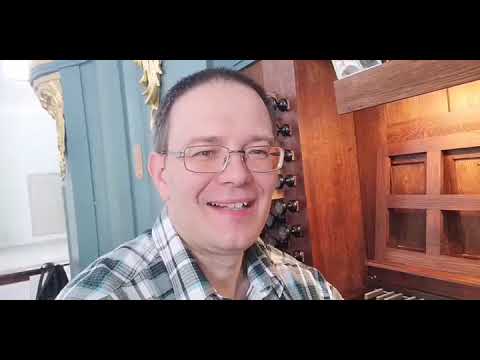
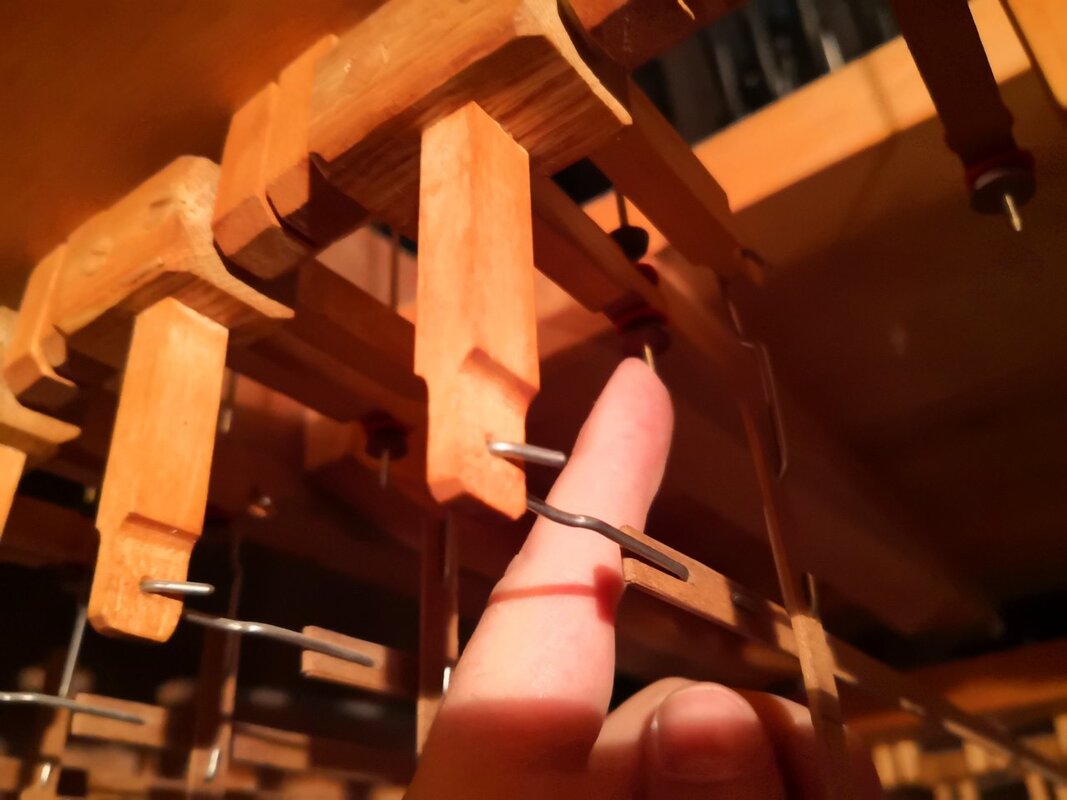
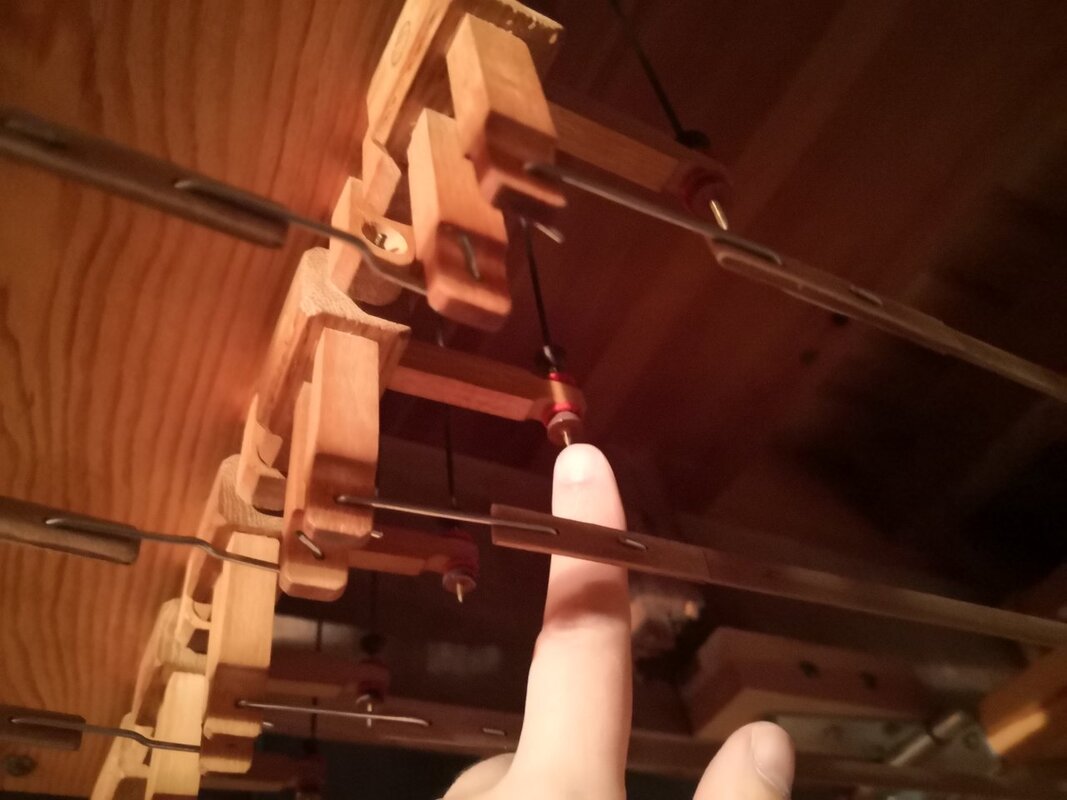
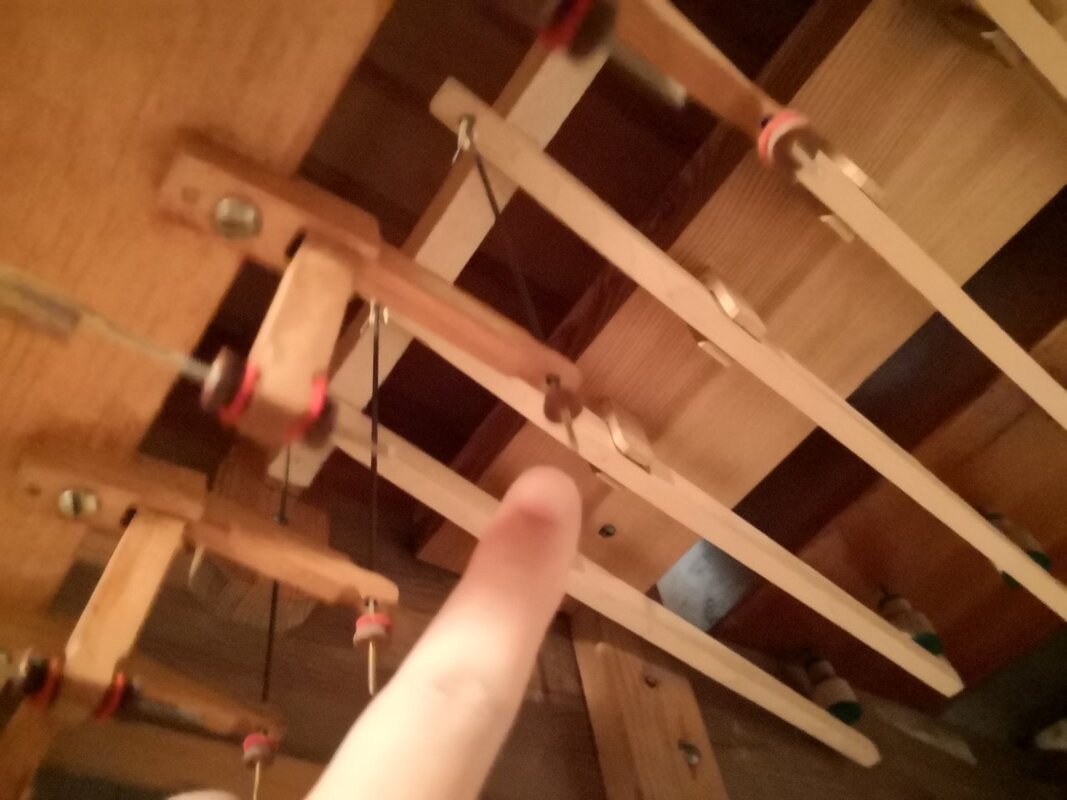
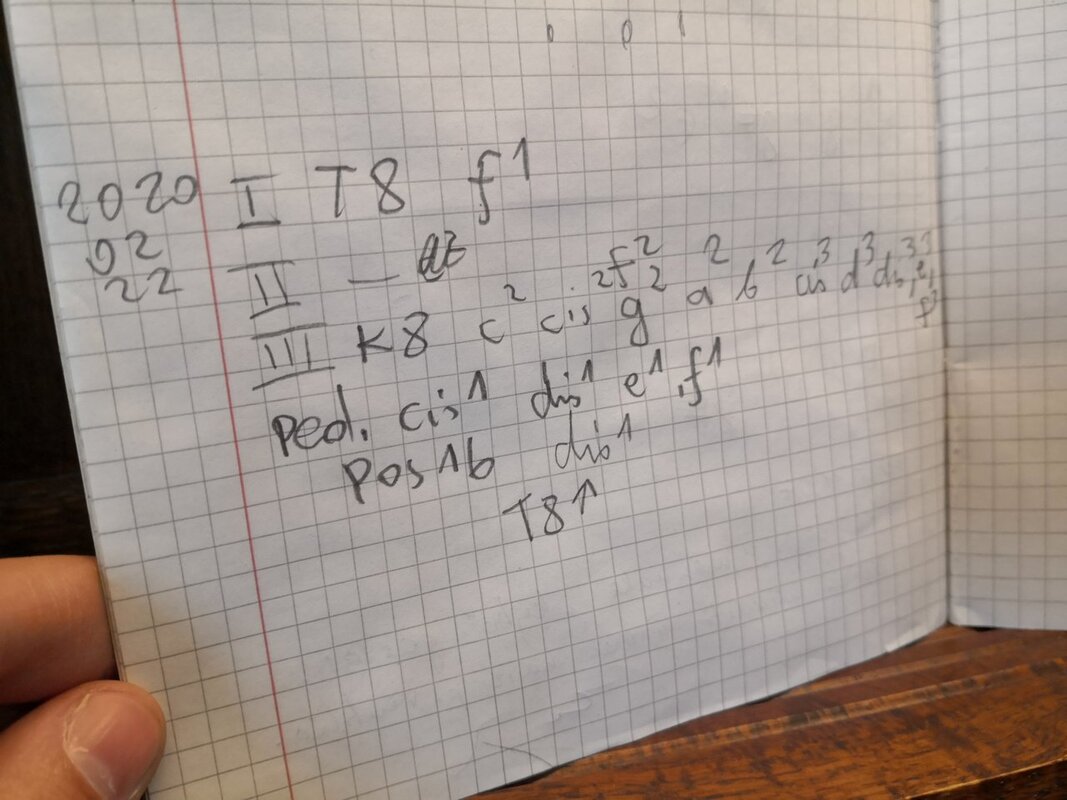
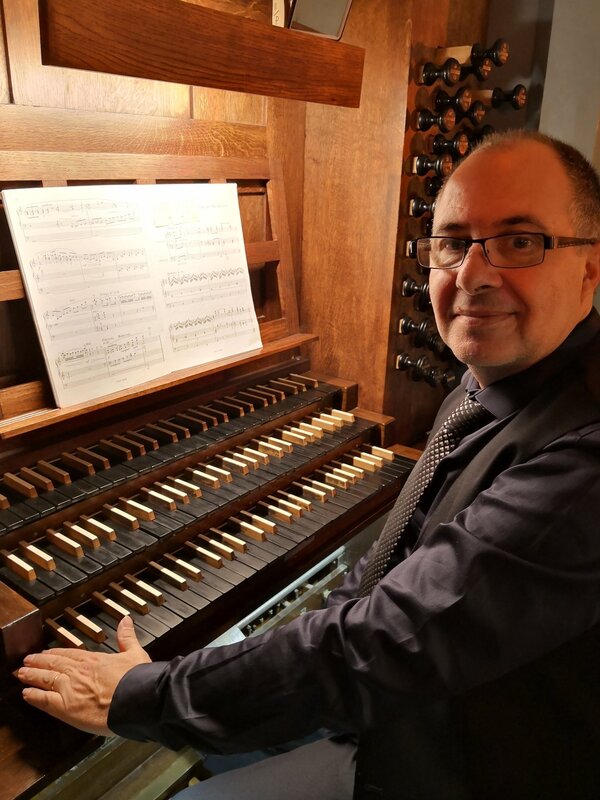
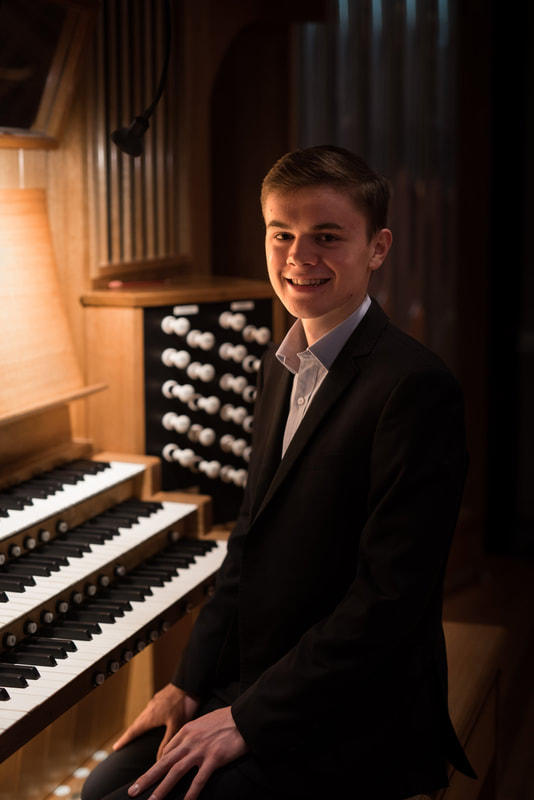
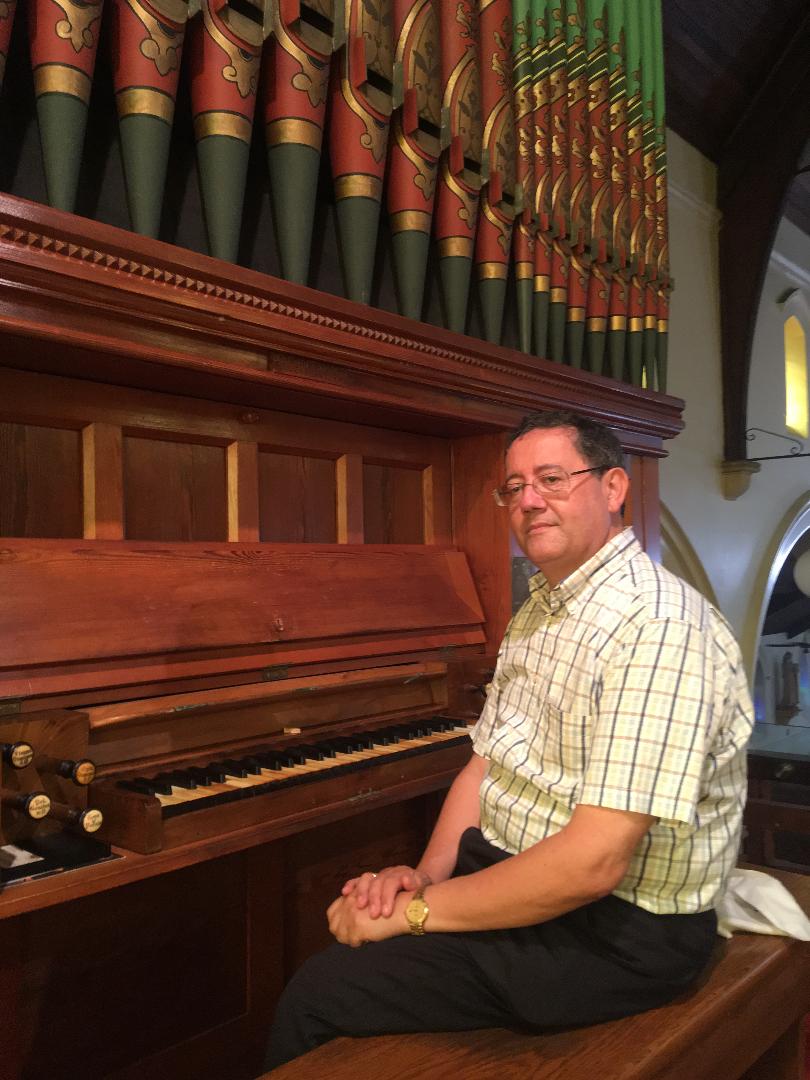



 RSS Feed
RSS Feed